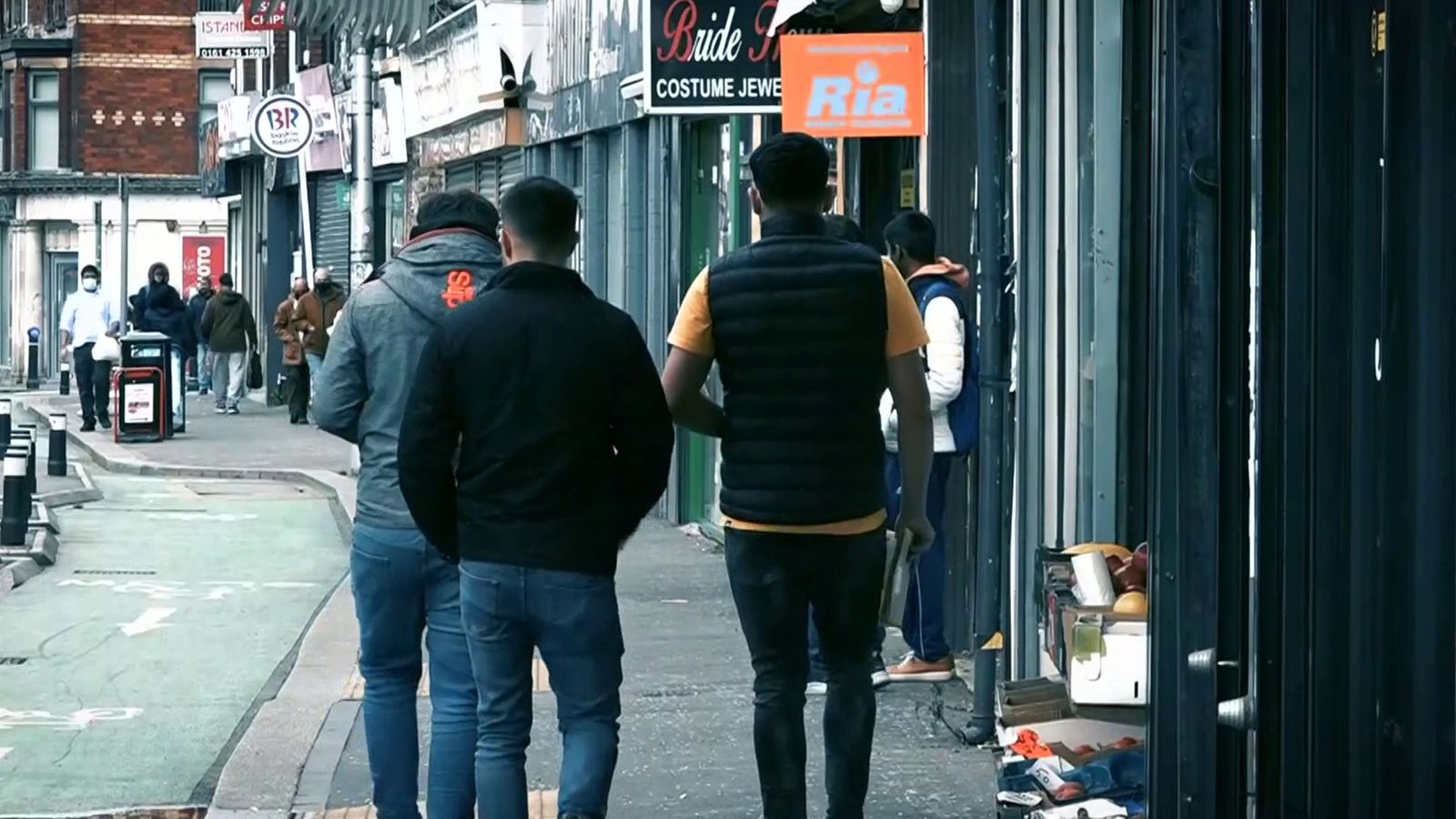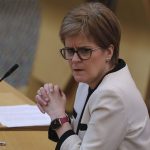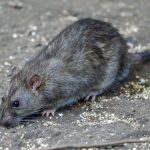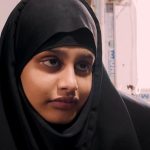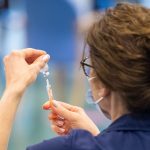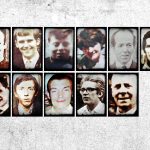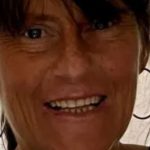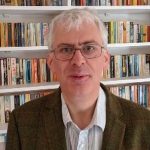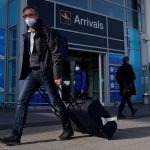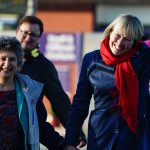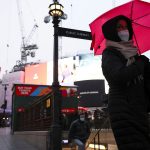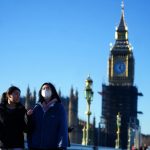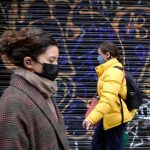“Meaningful progress” is being made in the campaign to overcome COVID vaccine hesitancy, but it is happening amid a “pandemic of disinformation”, the head of the NHS in England has said.
The country is fighting a “dual epidemic” and must take on both coronavirus and disinformation with “equal vigour”, Sir Simon Stevens said at Monday’s Downing Street press conference.
He added that progress is being made on uptake among black and south Asian communities, and believes the involvement of local religious leaders will help build momentum.
“What is happening about that is that there is a huge effort involving community leaders, faith leaders, the way in which the NHS itself is administering the vaccine programme to overcome that,” he said.
“Although the start was slower in terms of the uptake in some of those communities, I think we are now seeing meaningful progress.”
England’s chief medical officer, Professor Chris Whitty, said it was not necessarily a “matter of refusal, it’s a matter of thinking about it and then actually moving on to do so”.
He said he was meeting medical leaders from different ethnic groups on Monday night “to share experiences and share how we can work out how to make sure people are getting absolutely accurate information that makes clear that the risks of the vaccine are massively lower than the risks of getting this infection”.
Hesitancy and scepticism of the COVID-19 vaccine is highest among black, Pakistani and Indian people, despite these ethnicities being more likely to suffer severely from the illness.
Despite more than 15 million people having had the jab, Sky News has found reluctance based upon a long legacy of medical mistreatment – an issue most commonly found among members of the black community.
COVID-19: Latest news from the UK and around the world
We have discovered there are deep-seated multi-generational reservations and fear that some people have about the healthcare system.
Worshippers at Freedom’s Ark Church in Tottenham, London, have confided their worries in the Reverend Nims Obunge.
The pastor said these are real concerns which will take time to heal: “We’ve found that the black community has had a disproportionate experience around the experimentation of medicine in our community, so people need to start feeling confident not only about the vaccine, but around the ethical practices of medicine in relation to our community.
“You may recall there were even two French scientists who have alluded to the fact that it’s alright to test some vulnerable parts of Africa where they might get some more experimental opportunities. That should not happen.”
There are also fears among the Pakistani, Bangladeshi and Indian populations.
In Newham, the London borough which at one stage had the highest COVID-19 cases in the UK, diverse members of the community said they would turn down the vaccine if offered it.
Subscribe to the Daily podcast on Apple Podcasts, Google Podcasts, Spotify, Spreaker
They cited myths and conspiracy theories revolving around fears over fertility and the contents of the jab, which are all unproven.
Murtaza Masters, a pharmacist administering the vaccine to people in Birmingham, said: “We’ve heard a lot of things. They come in and ask will it affect my fertility?
“Some even say, if I have the vaccine will somebody track me and will it change my DNA. There is a lot of mistrust about it.”
Please use Chrome browser for a more accessible video player
These concerns are being intensified by dangerous content spreading misinformation about the vaccine which has been shared widely on social media platforms.
The videos, seen by Sky News, have been accused of “scaremongering” the public, by using illicit and false information based on no evidence.
But they appear to be having an impact, as fewer black and Asian people and other ethnic minorities are opting to get the vaccine.
The Department of Health and Social Care says of the 10.5 million first doses administered up to the first week of February, more than eight million were given to those from white backgrounds.
Only 8% of ethnic minorities were given a dose, including less than 5% of Asians and just under 2% of black people.
The UK isn’t the only country struggling with this problem. The US has also seen a discrepancy in the number of ethnic minority people choosing to be vaccinated.
Reverend Obunge said it’s about talking to people face to face and providing reassurance.
“We need to start building confidence in our communities… to create a safe space where people can have a conversation and people can share their fear, and their apprehensions about the historical past without embarrassment or shame,” he said.
Part of the issue has also been messaging – and in an attempt to address this, several public health videos have been translated into 13 different languages to target specific audiences.
Reverend Obunge is one of a growing number of faith leaders who are supporting local authorities to try to break down barriers.
The Director of the NHS Race and Health Observatory, Dr Habib Naqvi, said his team is also trying to heal the deep-rooted trust issues, starting with building trust in the COVID-19 vaccine.
Dr Naqvi said: “There’s definitely low trust amongst ethnic minorities that we need to look at and that may well be historical, but right now it’s not just about the decision of whether you decide to take the vaccine or not, there’s wider implication here, about protecting the health of your loved ones.”
Please use Chrome browser for a more accessible video player
Ministers have created a new COVID-19 Vaccine Uptake Plan which will involve working with local public health teams, charities and the faith sector to tackle the vaccination anxiety.
Celebrities and a cross-party group of MPs have also collaborated on social media videos to encourage uptake.
Faith and community leaders could hold the key to reassurance.
But a hesitant population is not a safe one and the battle is on to try and fully protect every corner of society.
Many believe it starts with rebuilding trust.
